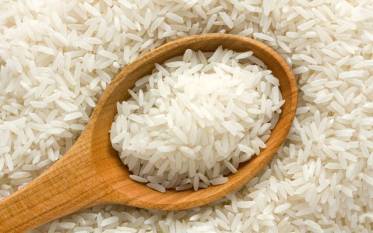NEW DELHI, 1 JUNE 2021: In a major boost to India’s non-basmati rice exports potential, two consignments of 4.5 MT patented ‘village rice’ sourced from Kumbakonam, Thanjavur district, Tamil Nadu by a start-up Udaya Agro Farm was exported to Ghana and Yemen via air, sea routes.
Enriched with protein, fiber, and a variety of minerals, ‘village rice’ is sourced directly from farmers of Thanjavur, also known as the rice bowl of Tamil Nadu. The Agricultural and Processed Food Products Export Development Authority (APEDA) assisted Udaya Agro Farm plans to increase the volume of exports of ‘village rice’ in the coming months.
Export 2020-21: Non-basmati rice impressive growth of 146 percent
During 2020-21, the shipment of non-basmati rice witnessed an impressive spike. The non-basmati rice exports were INR 35,448 crore (USD 4796 Million) during April-March, 2021 against INR 14,400 crore (USD 2020 Million) reported during April-March, 2020 period. The exports of non-Basmati have witnessed a growth of 146 percent in Rupee terms and 137 % Dollar terms in 2020-2021.
Earlier this month, a consignment of rice was exported from the Paradip International Cargo Terminal, Odisha to Vietnam. This was for the first time in recent years, non-basmati rice was exported from Paradip Port.
In March 2021, the first consignment of ‘red rice’ from Assam was exported to the USA. Iron-rich red rice’ is grown in the Brahmaputra valley of Assam, without the use of any chemical fertilizer. The rice variety is referred to as ‘Bao-dhaan’, which is an integral part of Assamese food.
Non-basmati rice exports to African and Asian countries are undertaken from various ports of India such as Kakinada, Vishakhapatnam, Chennai, Mundra, and Krishnapatnam. Paradip will soon emerge as one of the major rice-exporting ports of the country.
The sharp spike in rice exports especially during a phase where globally the COVID19 pandemic has disrupted supply changes in many commodities has been attributed to the government taking prompt measures to ensure exports of rice while taking all the COVID19 related safety precautions.
APEDA is working with various stakeholders such as farmers, entrepreneurs, exporters, and importers across the globe to harness India’s non-basmati rice export potential.
APEDA has promoted rice exports through collaborations with various stakeholders in the value chains. The government had set up the Rice Export Promotion Forum (REPF), under the aegis of the APEDA. REPF has representations from the rice industry, exporters, officials from APEDA, ministry of commerce, and directors of agriculture from major rice-producing states including West Bengal, Uttar Pradesh, Punjab, Haryana, Telangana, Andhra Pradesh, Assam, Chhattisgarh, and Odisha.
Image credit: udayaagro.com




















